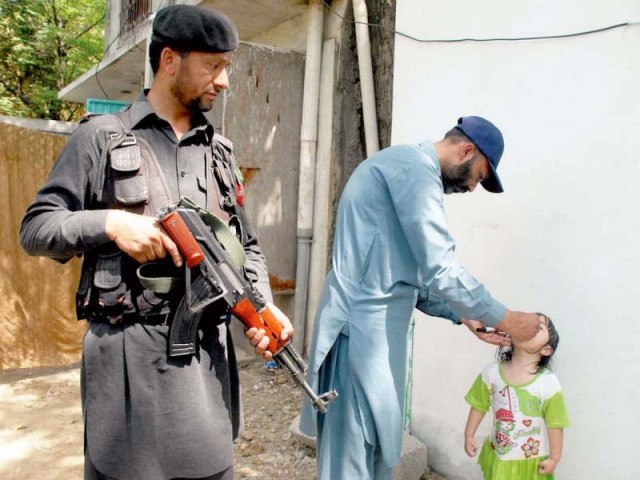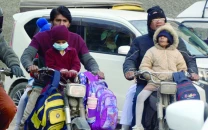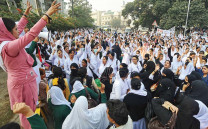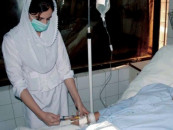Disinformation disturbs anti-polio drives
Report says some Pashtun dominated areas show resistance

Anti-polio vaccination campaigns in some parts of Karachi still get cold response due to disinformation and misinformation, according to a new investigation released by PPI on Sunday.
The people, mainly Pakhtuns, in Orangi town, Landhi, Suhrab Goth, Shireen Jinnah Colony, Old Sabzi Mandi area, Katti Pahari, Hazara Goth in Gulshan-eIqbal, and slum areas of the city, are avoiding anti-polio vaccinations due to misconceptions, myths, religious beliefs and conspiracy theories, according to the investigation report made by senior journalist M Nawaz Khuhro under the joint collaboration of Pakistan Press Foundation and Media Matters for Democracy.
The findings show some common types of misinformation and disinformation are as: the vaccination is a bid to spy certain high profile people in Pakistan, particularly in Karachi; it is a conspiracy to develop infertility to reduce population in Pakistan; it is an anti-Islam agenda as pig protein is added in the vaccine; People who are vaccinated still get the disease; vaccines cause harmful side effects and unknown long-term effects; why campaigns are not held for other deadly diseases like cancer, hepatitis, diabetes and heart ailments; the vaccine is the disease itself; and more vaccinated people turn sick more as compared to unvaccinated people.
According to Independent Monitoring Board's report 2021, lingual refusals show that Pakhtuns offer more resistance to polio vaccination with 55%, Urdu speaking 14%, Hindko 9%, Sindhis 5%, Punjabis 5%, Bengalis 5%, Balochis 5%, Siraiki less than 1%, and others 2%. The reasons behind vaccination refusals in Karachi are misconception 78%, direct refusals 8%, sickness 6%, religious 4%, demands 3%, and fear of Covid (less than 1%).
The government has failed to cover the polio campaign in many areas of Karachi as people in these areas hid children or attacked polio workers, according to the report. The investigation shows that the anti-polio vaccination's missing cases, refusals, unstable health delivery system, low health budget, government negligence, misconception about polio vaccination and low public interest in administering polio drops are major causes behind polio eradication.
In an interview, Dr SM Qaiser Sajjad, Secretary General at Pakistan Medical Association (PMA), said that all unscientific misconceptions about polio vaccination are a fake propaganda.
The vaccination would neither develop infertility nor cause any harm while the misinformation and disinformation that polio drops will end generations is total fake propaganda which should be ended by raising the number of antipolio drives on mainstream and social media. Polio is a highly infectious disease caused by a virus as it invades the nervous system, and can cause leg paralysis among children for whole life and there is no treatment for this disease; therefore, administration of anti-polio drops are mandatory for children upto five years of age.
Though there is no case in Karachi in 2021 and 2022 so far, the Independent Monitoring Board report shows that the vaccination campaign quality data has again shown weak performance in Karachi as quality declined from a low base of 60%to 50% within a year. Problems in quality are affecting all districts in Karachi. PP


















COMMENTS
Comments are moderated and generally will be posted if they are on-topic and not abusive.
For more information, please see our Comments FAQ